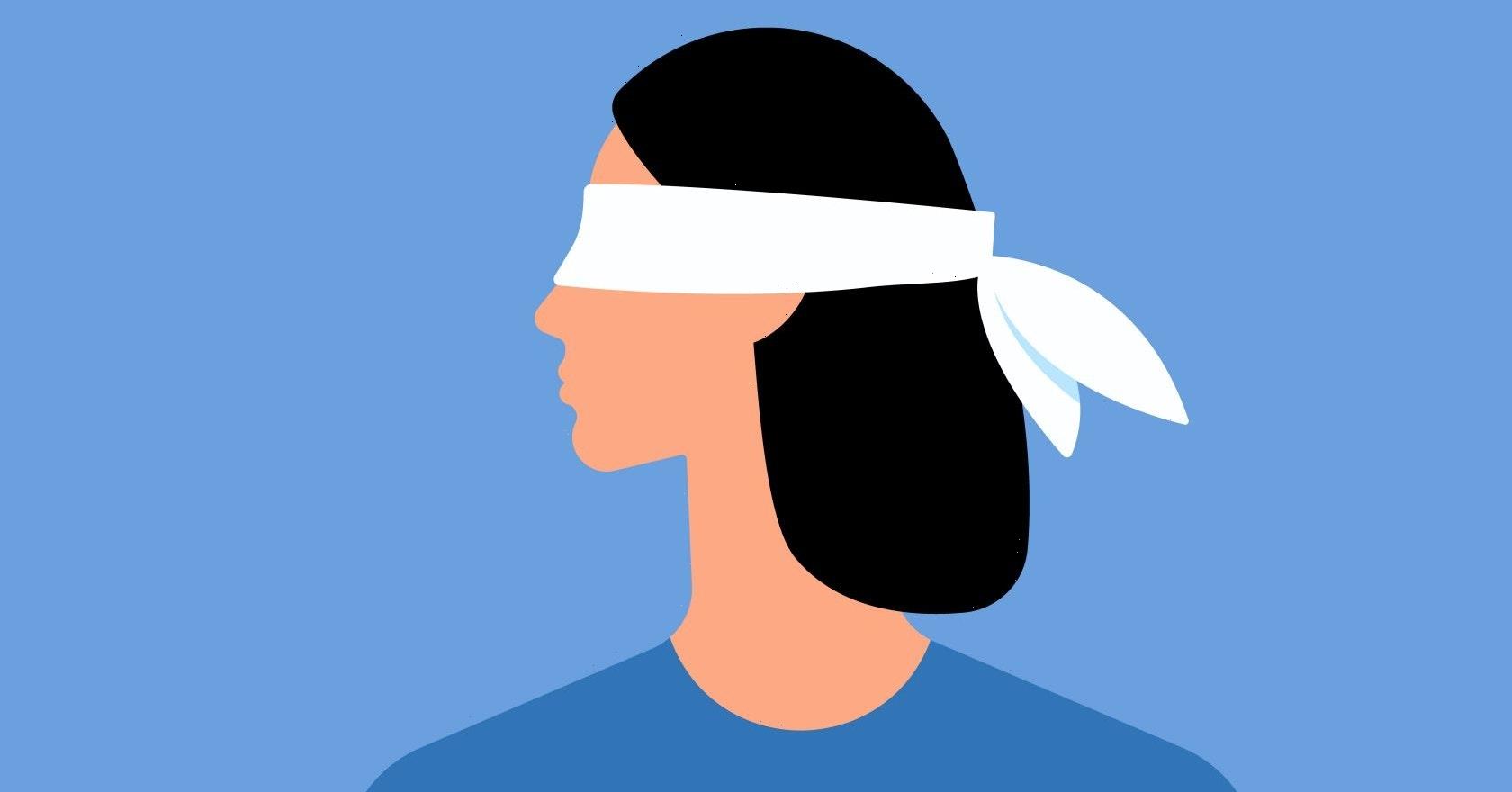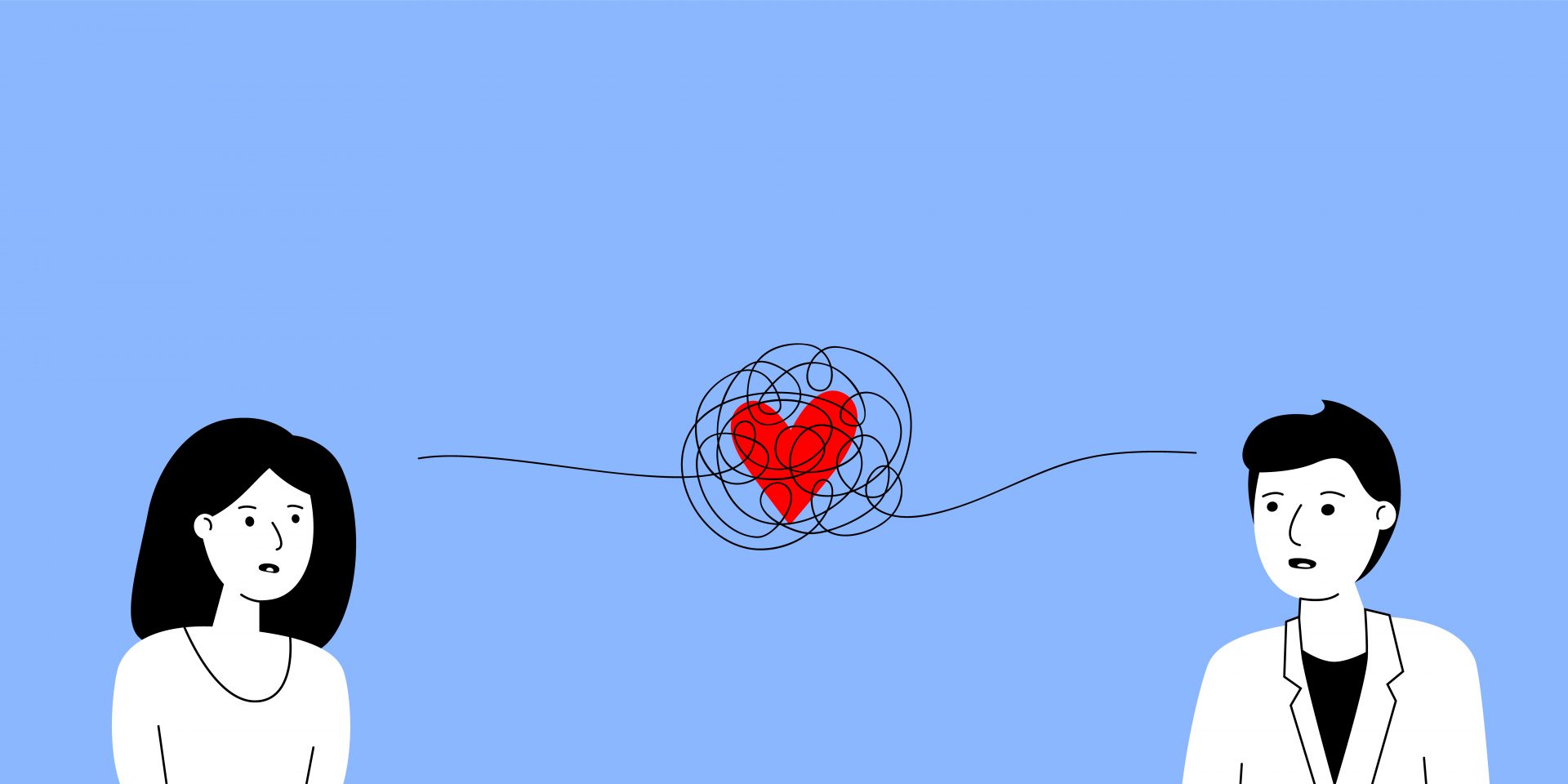Written by Amy Beecham
2023 may be the year for gaining clarity on your relationship, what you want and what needs work.
How many times have you gone through a break-up, only to lament that you should have noticed the red flags from the beginning? While we know that hindsight can be 20/20, not being able to exercise judgment, awareness or perspective when it comes to your partner’s (or your own) actions is a very real position. In fact, it’s known as a relationship blind spot.
“You know those arguments you keep having over and over again? Where you feel like you’re going around in circles?That’s a sign you’re in a relationship blind spot,” explains Deb Morgan, a relationships expert.
Whether it’s defensiveness, neediness, a lack of emotional awareness, a tendency to avoid difficult conversations or the inability to see another person’s perspective, they are ultimately defence mechanisms and coping strategies that we learn with the aim of protecting ourselves from feeling hurt but create unnecessary conflict and distance in relationships.
The thing is: we all have them. In any partnership, it’s natural that we’re not always going to recognise weaknesses or flaws when we’re so close to them. Because just like bad habits, these blind spots are difficult to notice because they are so ingrained in us. But discovering and understanding what yours may be can have a lasting impact on the quality and longevity of your relationship.
How to spot a relationship blind spot
Whether you’re judging your own or someone else’s, it’s true that identifying blind spots in relationships can be a difficult process. “It’s hard to see your own blind spots because they are, by definition, behavioural patterns that we aren’t fully conscious of, at least at first,” Jessica Alderson, co-founder and relationship expert at dating platform SoSyncd tells Stylist.
Because when we constantly repeat patterns, or habits, no matter what they are, we need a ‘pattern interrupt’ or something that will make us acknowledge that the pattern isn’t working for us and push us to find a new way of dealing with the issue. In most cases, people require an outside perspective, like a therapist or coach, to accurately identify their unique blind spots. But when it comes to taking a magnifying glass to your relationship, there are a few places you can start.
Spending time alone and concentrating on introspection can be a helpful way to assess how your relationship is serving you. “The annoying thing about blind spots is that we rarely know our own (unless we have had a lot of therapy or have very open friendships) even though we can see those of others,” adds Laura Buckley of matchmaking agency Secret Alchemy.
“We can all relate to that one particular friend who always self-sabotages relationships but doesn’t understand why, even though to us, it’s glaringly obvious. How often in your dating life do you repeat mistakes or get told the same thing, but refuse to believe it? This is your blind spot.”
As relationship coach and founder of Easyoga Gemma Nice puts it, blind spots in relationships are also like comfort zones.
“We all know that familiarity where we get comfortable in our relationship and all feels OK but that’s where we can become complacent,” she says. “They can stop us from seeing something bad within our relationship; we tend to think our partner is overreacting to something but actually they aren’t, it’s just that we are in our blind spot.”
How should you deal with relationship blind spots?
Once you have identified a relationship blind spot, the next step is to take action.
“Sit down with your partner and have an open and honest conversation about the blind spots that you’ve identified,” advises Morgan. “It’s important that you both approach this discussion in a non-judgmental way and listen to each other’s perspectives. This will help you both gain a better understanding of the blind spots in your relationship, and you can then begin to work together to try and shift the way that these patterns manifest in the future. When either of you notices your blind spots appearing in everyday life, try to pause and acknowledge it. This will help both of you stay conscious of the situation and better manage your reactions.”
“Unlearning behaviour is the key to navigating blind spots,” continues Nice. “The issue with someone else’s blind spot is that it can quickly become an ‘ick’. There may be a behaviour or something they do subconsciously that they have never thought was a ‘thing’ that drives you mad.”
But is a blind spot the same as a red flag? It depends on how you look at it.
“Blind spots are always about behaviour,” says Buckley. “There is always a reason for a behaviour. People are born as a blank slate and behaviours are learned from our experiences; they don’t happen for no reason.” However, blind spots are such because it’s safer to be oblivious to some of our own behaviours.
“In a relationship, it’s important to grow together and to start becoming aware of our blind spots. This means constructive and supportive communication. Helping each other to see the detrimental behaviours and to work together to change them.
“People can change their behaviour if they’re aware of it and open to working on it. In dating, if you’re dating someone who is oblivious and thinks that everyone else is the issue, then for me, that’s a concern. If you have someone who is open to working on themselves – after all, nobody is perfect and everyone has work to do – then this for me is a green flag. You want to be with someone who is open to growing and developing.”
Ultimately, everyone has blind spots and they don’t have to be deal-breakers in relationships. But they often require a significant amount of hard work to overcome. So if they are causing you stress, you should make sure that you and your partner are both willing to put in the effort to address them.
Images: Getty
Source: Read Full Article

